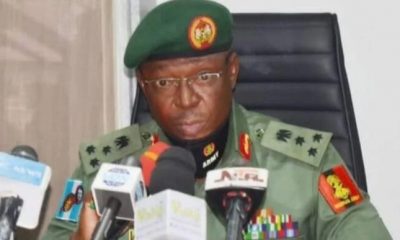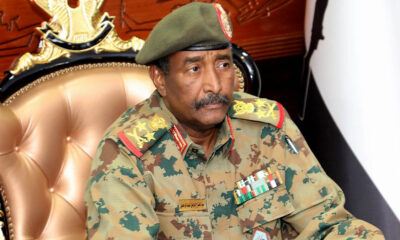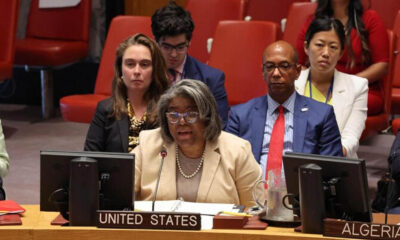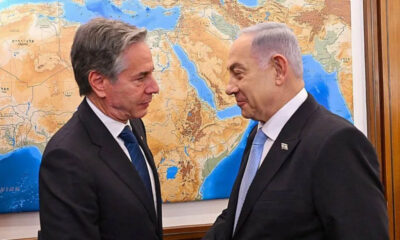Africa
Sudan ceasefire talks start despite army no-show

Sudan ceasefire talks start despite army no-show
GENEVA: US-sponsored talks on securing a ceasefire in the devastating conflict in Sudan kicked off in Switzerland on Wednesday, despite the Sudanese government staying away.
War has raged since April 2023 between the Sudanese army under General Abdel Fattah Al-Burhan and the paramilitary Rapid Support Forces (RSF), led by his former deputy Mohamed Hamdan Dagalo.
The talks are being convened by Tom Perriello, the US special envoy for Sudan, who said after the opening session that it was “high time for the guns to be silenced.”
The talks, which could last up to 10 days, are being held behind closed doors in an undisclosed location in Switzerland.
While the RSF delegation is taking part, the Sudanese armed forces (SAF) are unhappy with the format arranged by Washington.
“We have stressed that they have a responsibility to be there, and we’ll continue to make that clear,” State Department spokesman Vedant Patel said of the Sudanese army.
Patel, speaking to reporters in Washington, said that the United States felt it needed to do all it can to address “one of the most dire humanitarian situations in the world.”
READ ALSO:
- Mpox a global health emergency, sats WHO
- India women lead night protests after doctor’s rape and murder
- Columbia University president resigns after Gaza protests turmoil
Perriello earlier warned the army that “the world is watching” as it stays away.
The talks are co-hosted by Saudi Arabia and Switzerland, with the African Union, Egypt, the United Arab Emirates and the United Nations acting as a steering group.
Without the SAF, other attendees will press on with the talks’ agenda.
“Our focus is to move forward to achieve a cessation of hostilities, enhance humanitarian access and establish enforcement mechanisms that deliver concrete results,” Perriello said.
The brutal conflict has triggered one of the world’s worst humanitarian crises.
The fighting has forced one in five people to flee their homes, while tens of thousands have died.
More than 25 million across the country — more than half its population — face acute hunger.
Vittorio Oppizzi, Sudan program manager for the medical charity Doctors Without Borders (MSF), said both parties had “manipulated” humanitarian access, in violation of international law.
He told reporters MSF was well used to operating in conflict zones, and safe and unhindered access “should not be dependent on a cessation to hostility or a solution to the conflict.”
Sudan ceasefire talks start despite army no-show
ARAN NEWS
Africa
British plumber gets death sentence in Congo over coup attempt
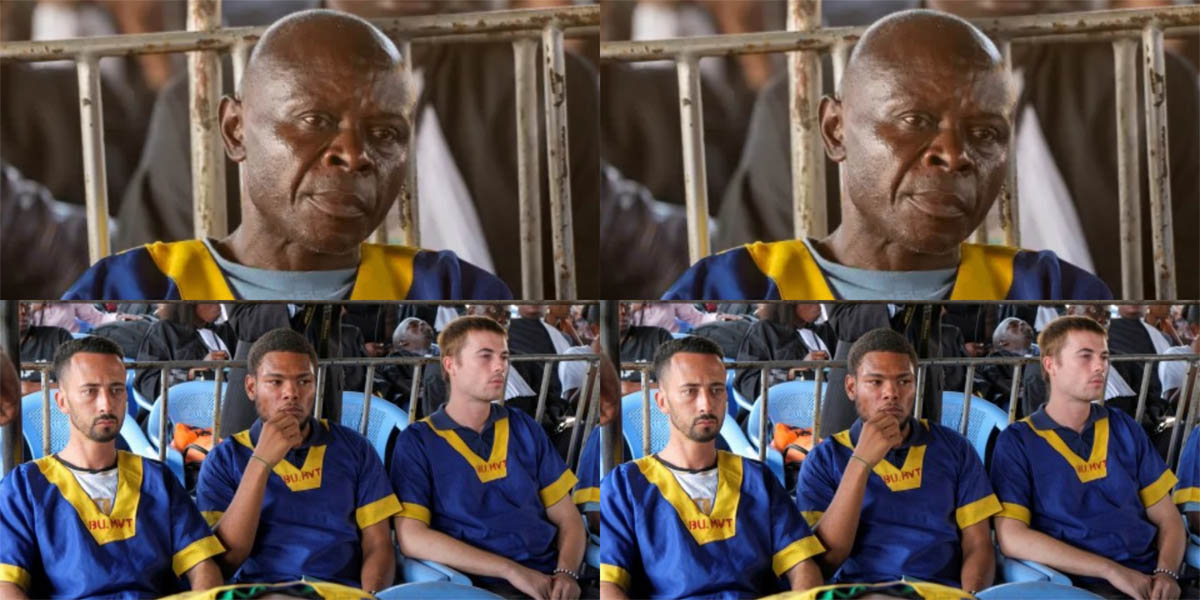
British plumber gets death sentence in Congo over coup attempt
A British man has been sentenced to death after being convicted of participating in a coup attempt in the Democratic Republic of Congo.
Youssouf Ezangi, a 53-year-old UK citizen of Congolese descent who worked as a plumber in London, was one of six foreign nationals handed “the harshest penalty” by a military court.
One Canadian, a Belgian and three US citizens were also among the among the 37 defendants found guilty on charges of attempted coup, terrorism and criminal association.
Six people were killed in the failed attempt to oust elected President Félix Tshisekedi, who has ruled the country of 109,000,000 people since 2019.
The botched coup’s leader, Christian Malanga, was shot dead by security forces soon after livestreaming the attack on the presidential palace on May 19.
Armed men under his commanded briefly occupied on office in the palace before the coup attempt was suppressed.
Malanga’s 21-year-old son Marcel, one of the US citizens, claimed his father coerced him and high school friend from Utah, Tyler Thompson, 21, to participate.
READ ALSO:
- Nurse escapes gang-rape attempt in Indian hospital, cuts doctor’s private parts with blade
- Kidnappers kill hotel owner, manager, guest after collecting N25m ransom
- Five Chinese arrested in Akwa Ibom for illegal mining
He told the court: “Dad had threatened to kill us if we did not follow his orders.”
This story was echoed by other participants, and by Marcel’s mother, Brittney Sawyer, who claims her son was innocent.
Mr Thompson said: “Christian had woken us up in the middle of the night dressed in a military uniform with a gun around his waist and said the military will arrive here shortly.
“The only thing he told me is that I must do everything as he says or else I will die.”
Christian Malanga, a little-known used car salesman who dabbled in gold mining, considered himself president of a shadow government in exile, Ms Sawyer said.
Mr Thompson and the younger Mr Malanga’s school football teammates claim Mr Malanga offered up to £76,000 for them to join him in a “security job” in Congo.
The DRC reinstated the death penalty earlier this year, fuelling hope that the British man and his co-defendants can appeal the open-air court’s ruling.
Richard Bondo, lawyer for the six foreign nationals, said: “We will challenge this decision on appeal.”
Mr Bondo also claimed the defendants had not been provided with adequate interpreters during the investigation.
They were given five days to appeal the verdict.
Foreign Office officials have tried to convince the DRC to drop plans to execute Mr Ezangi.
A spokesperson said: “We are providing consular assistance to a British man detained in DRC and are in contact with the local authorities.
“We have made representations about the use of the death penalty to the DRC at the highest levels, and we will continue to do so.”
The third American has been named as Benjamin Reuben Zalman-Polun, a 36-year-old believed to have met Christian Malanga through a gold mining company.
British plumber gets death sentence in Congo over coup attempt
Africa
Court jails Inspector General of Police to six months
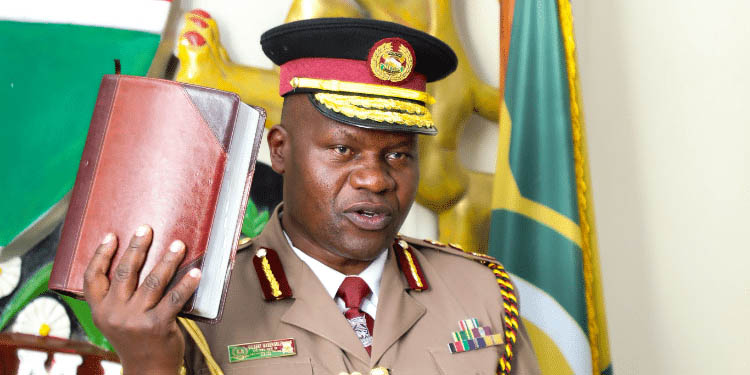
Court jails Inspector General of Police to six months
In a dramatic turn of events, Kenya’s acting Inspector-General of Police, Gilbert Masengeli, has been sentenced to six months in prison for brazenly defying court orders.
The High Court in Nairobi handed down the ruling after Masengeli repeatedly failed to provide crucial testimony regarding the disappearance of three men, allegedly abducted by police officers.
The police chief’s refusal to cooperate with the court has stirred outrage, with many questioning the lengths the authorities will go to cover up the abductions.
The three missing individuals were vocal supporters of the mass anti-government protests that rocked Kenya in June and July, leading human rights activists to accuse state agents of orchestrating a series of abductions aimed at silencing dissent.
Despite President William Ruto’s public promises to investigate the claims, Masengeli’s blatant disregard for the court’s authority has cast a shadow over the government’s stance.
READ ALSO:
- Why only Nigerians call petrol PMS – Farooq Kperogi
- I’ll turn down suitor who doesn’t support my career – Imade Osawuru, actress
- FG declares Monday public holiday for Eid-ul-Mawlid
The Law Society of Kenya, which brought the lawsuit, is demanding the safe return of the missing men, who have not been seen since August.
Judge Lawrence Mugambi, frustrated by Masengeli’s repeated absences in court, had given the police boss no fewer than seven opportunities to appear and explain the whereabouts of the missing men.
With his patience exhausted, the judge issued the jail sentence but suspended it for seven days, offering Masengeli one final chance to comply or face prison.
“If he fails to present himself to the Commissioner General of Prisons, the minister of interior must take all necessary legal steps to ensure Masengeli is incarcerated,” declared Judge Mugambi.
The defiant police chief, through his legal team, is now scrambling to have the contempt ruling overturned, claiming efforts to locate the three men are still ongoing. However, with mounting pressure from activists and the public, Masengeli’s time may be running out.
The police department, led by spokesperson Resila Onyango, has remained tight-lipped on the scandal, fueling further speculation and outrage.
Court jails Inspector General of Police to six months
Africa
DR Congo coup: US, British citizens among 37 sentenced to death
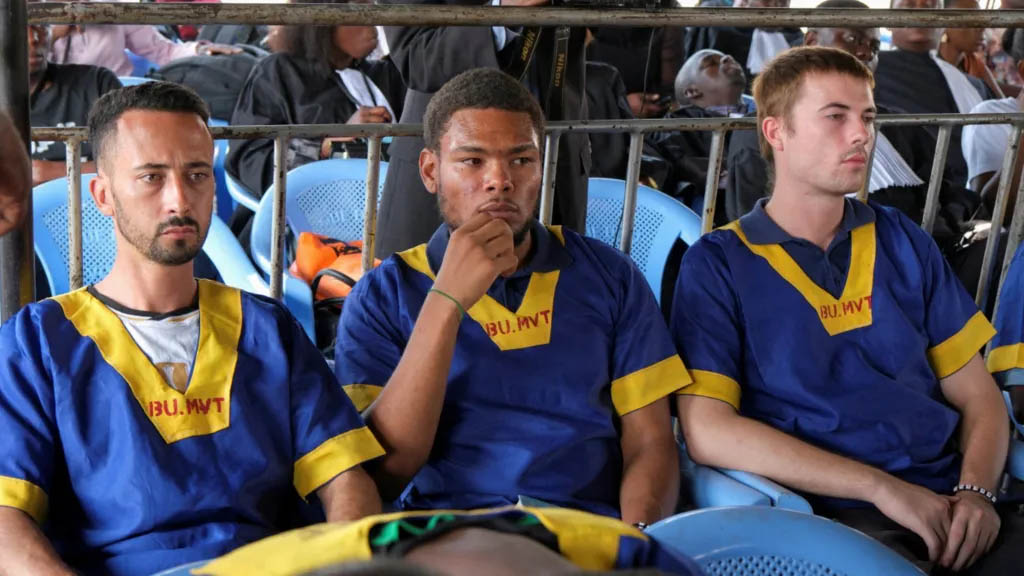
DR Congo coup: US, British citizens among 37 sentenced to death
Thirty-seven people – including three Americans, a Briton, a Belgian and a Canadian national – have been sentenced to death over an attempt to overthrow the president of the Democratic Republic of Congo.
The men were accused of leading an attack on both the presidential palace and the home of an ally of President Félix Tshisekedi in May.
Christian Malanga, a US national of Congolese origin, the suspected leader of the plot, was killed during the attack, along with five others.
In total 51 people were tried in a military court, with hearings broadcast on national TV and radio.
Malanga’s son Marcel, one of the US citizens sentenced to death, previously told the court that his father had threatened to kill him unless he took part.
His friend Tyler Thompson, was also given the death penalty. The pair, aged in their 20s, had played football together in Utah.
His stepmother Miranda Thompson in June told the BBC the family had “zero idea” how he had ended up in DR Congo.
“We were in complete shock as to what was happening, and the unknown. Everything we were learning was what we were getting off Google,” she said.
The third American, Benjamin Zalman-Polun, had business interests with Christian Malanga.
READ ALSO:
- 13 abducted students rescued in Kaduna
- I’ve no apologies threatening to destabilise PDP states, says Wike
- War in Sudan ‘one of the ugliest’ – UN official
Also sentenced to death was Jean-Jacques Wondo, a dual Congolese and Belgian citizen.
Human Rights Watch previously described him as a prominent researcher on regional politics and security, and suggested the evidence connecting him to the coup attempt was thin.
The AFP news agency reports that the Briton and Canadian nationals were of Congolese origin.
The court heard the British national, Youssouf Ezangi, had helped recruit some of the others who took part.
Of the 51 tried, 14 people were acquitted and freed, with the court finding they had no connection to the attack.
Those convicted have five days to appeal against their sentences.
Death sentences have not been carried out in DR Congo for roughly two decades – convicts who receive the penalty serve life imprisonment instead.
The government lifted this moratorium in March this year, citing the need to remove “traitors” from the nation’s dysfunctional army. However, no death penalties have been carried out since.
The attempted coup began in the capital, Kinshasa, in the early hours of 19 May. Armed men first attacked parliamentary speaker Vital Kamerhe’s home in Kinshasa then headed to the president’s official residence.
Witnesses say a group of about 20 assailants in army uniform attacked the palace and an exchange of gunfire followed.
An army spokesman later announced on national TV that security forces had stopped “an attempted coup d’etat”.
Local media reports said the assailants were members of the New Zaire Movement linked to Malanga, an exiled DR Congolese politician.
Malanga was shot dead in the attack after resisting arrest, said army spokesperson Brig Gen Sylavin Ekenge.
President Tshisekedi was re-elected for a second term in disputed elections last year in December. He won about 78% of the vote.
DR Congo is a country with vast mineral wealth and a huge population. Despite this, life is difficult for many people, with conflict, corruption and poor governance persisting.
Much of the country’s natural resources lie in the east where violence still rages despite Mr Tshisekedi’s attempts to deal with the situation by imposing a state of siege, ceasefire deals and bringing in troops from neighbouring countries.
DR Congo coup: US, British citizens among 37 sentenced to death
BBC
-

 metro1 day ago
metro1 day agoFG begins free CNG conversion in three Ogun centres
-

 Auto3 days ago
Auto3 days agoCNG: Motorists get N230/SCM, free conversion for Lagos vehicles
-

 Politics2 days ago
Politics2 days agoI’ve no apologies threatening to destabilise PDP states, says Wike
-

 Politics3 days ago
Politics3 days agoTension rises as PDP suspends Dino Melaye
-

 Business1 day ago
Business1 day agoPetrol: Dangote pump price emerges as NNPC trucks begin loading
-

 Business2 days ago
Business2 days ago100 NNPC trucks arrive at Dangote Refinery to lift petrol, 200 more expected (Photos)
-

 Business2 days ago
Business2 days agoUpdated: Dangote refinery to begin petrol supply Sunday, signs agreement with NNPCL
-

 International3 days ago
International3 days agoCambodian woman arrested for attacking lady caught with her Nigerian boyfriend

